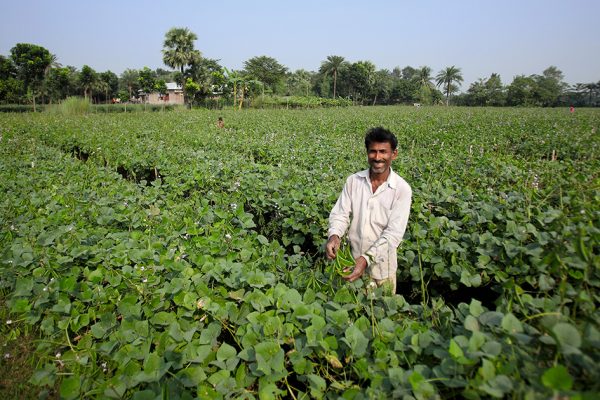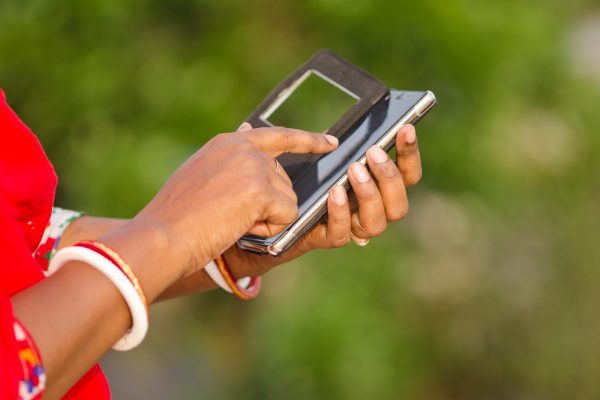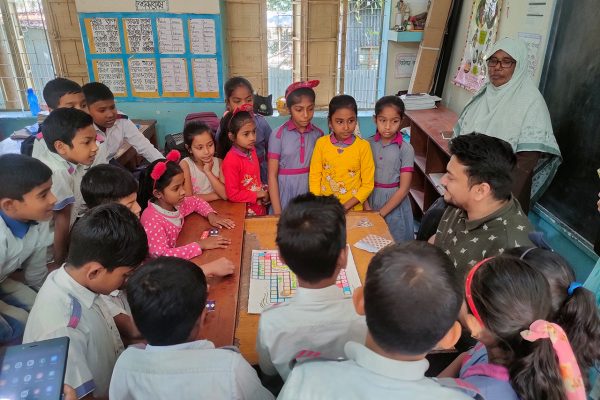The importance of social empowerment to break the poverty trap
Reading Time: 3 minutes
Through regular mentorship and life-skills training, as well as providing linkages to community associations, the Graduation approach’s prioritisation of socially empowering participants improves their overall well-being, enables self sufficiency, and strengthens social inclusion within their community long term.
On a warm day in the Bangladeshi district of Rangpur, Shahina and the group of women she sits among take turns sharing their stories – the glowing, late afternoon sun paints golden streaks of light on the brick walls behind them.
Since completing BRAC’s Ultra-Poor Graduation Programme in 2006, all of these women sitting together have been out of extreme poverty for more than 16 years. While pride beams from their eyes in recognition of how far they and their families have come, there is also a subtle sadness as the group recounts their past struggles, 16 years not being enough to erase the trauma of extreme poverty.
Shahina continued, “In those times [before enrolling in the programme] not having enough food or having rain come in through your roof was of course very difficult. Of course”.
There is a long pause as her eyes move down to the polyester mat covering the packed dirt floor in which she is seated.
“But when I think back on those hard years, I think about not having anyone to talk to. Not being invited to any weddings…to anything. I was so alone. I think that was the hardest thing”.
The women around her nod in agreement.
“I began my work with BRAC, and at the first meeting [with my coach] I was asked, ‘how are you?’ It was the first time anyone has ever asked me that”.
A smile formed in Shahina’s eyes, lifting them up from the ground and meeting the eyes of those sitting around her.
“It changed everything”.
There are millions of women around the world living in extreme poverty, many of whom are isolated from their community, and are experiencing negative psychological effects as a result – an injustice that is much more profound than financial deprivation alone.
As the community of development practitioners implement solutions in response to the devastating impacts of the pandemic which continue to reverberate around the globe and exacerbate an emergency of extreme poverty, social empowerment of the world’s most vulnerable people must be prioritised to the same extent as their financial empowerment.
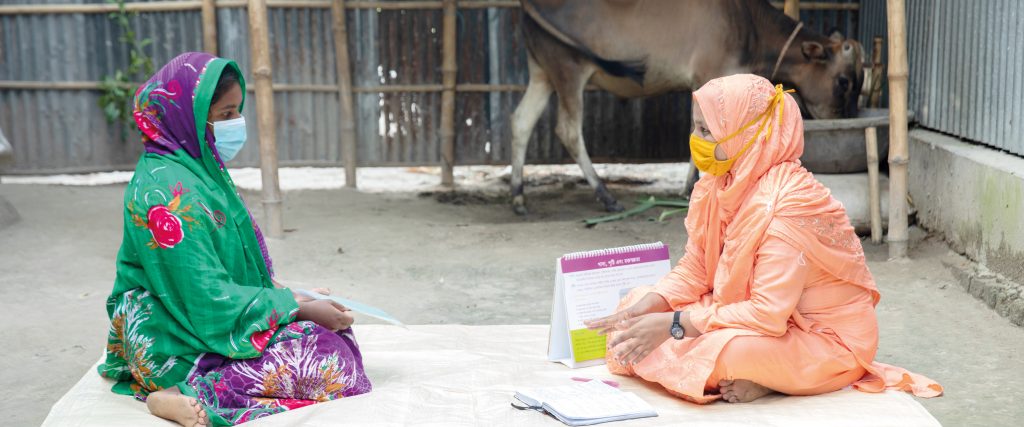
Image: A participant of the Ultra-Poor Graduation Programme and her coach, in Bangladesh. BRAC © 2022
“In the old days, one used to think that one takes resources to [people living in poverty] and distributes them, and they come out of poverty…I got to know poverty first-hand in the villages of Bangladesh. I became more aware of the multidimensional aspect of poverty. It’s not just lack of income… It’s all kinds of deprivation that constitutes poverty.” – Sir Fazle Hasan Abed, founder, BRAC.
After 20 years of evaluating, innovating and adapting the Graduation approach to address the multidimensional and complex nature of extreme poverty, BRAC has identified four key elements essential to the impact and success. One such element is social empowerment.
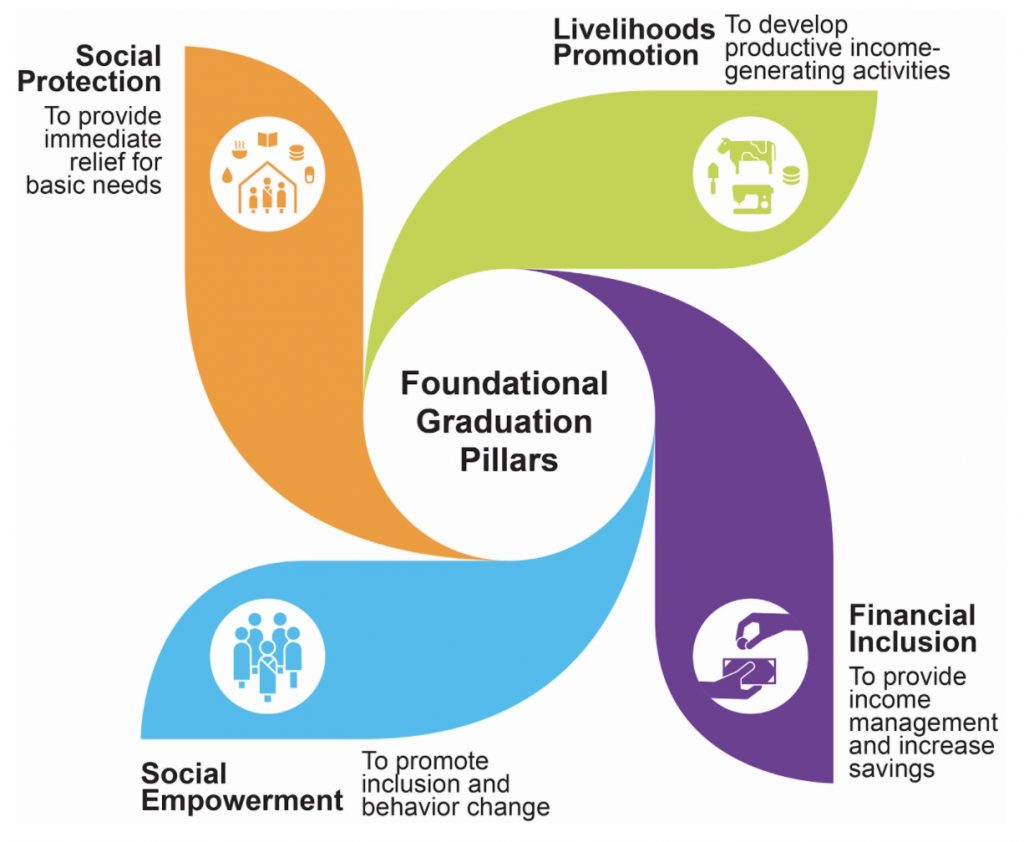
Image: The four key elements of BRAC’s Graduation approach
Through regular mentorship and life-skills training as well as providing linkages to community associations, the Graduation approach’s prioritisation of socially empowering participants improves their overall well-being, enables self sufficiency, and strengthens social inclusion within their community over the long-term.
When Shahina and her fellow graduates from the 2006 cohort were asked, “What was the most important aspect of the programme nearly 20 years ago?” many of them responded, “The knowledge we received from our coach,” who they still remember to this day.
They cited a greater understanding of their health and that of their livestock. They also proudly talked about how they’ve grown their assets, increased their land ownership, and are engaging more actively in the community – all of which demonstrated their improved self-esteem and greater sense of belonging.
Through the life skills training provided by their coaches, the women are better informed about issues such as proper nutrition and childhood education, which has been shown to significantly drive down childhood malnutrition and increase children’s school attendance among participating households. Investment in children’s education is a critical predictor of a household’s ability to sustain and improve its well-being in the face of shocks.
An older woman, Rehana, said: “I’m invited to my neighbour’s house now – to weddings here in the community. People used to treat me like I didn’t matter. I used to believe I didn’t matter. Now, I am a part of this community. Now, I believe I matter.”
These improvements in individuals’ well-being have lasting impacts on their resilience to shocks as well. With improved mental health and life skills, participants are better able to protect against future shocks from climate disasters, economic downturns, and diseases like COVID-19.
Through coaching, our participants have noted an increase in confidence that has empowered them to increase ownership of their assets, take on leadership roles within the community, and combat traditional gender norms that further inhibit women in extreme poverty.
The Ultra-Poor Graduation (UPG) programme is a flagship programme at BRAC, pioneered in 2002 and acclaimed for its innovative and holistic solution to extreme poverty. BRAC’s Graduation approach is a comprehensive, time-bound, integrated and sequenced set of interventions that aims to enable households living in ultra-poverty to achieve key milestones towards sustainable livelihoods and socioeconomic resilience, in order to progress along a pathway out of extreme poverty. Since it began in 2002, the programme has worked with over 2.1 million households living in extreme poverty in Bangladesh as of December, 2020.
The Ultra-Poor Graduation (UPG) programme is a flagship programme at BRAC, pioneered in 2002 and acclaimed for its innovative and holistic solution to extreme poverty. BRAC’s Graduation approach is a comprehensive, time-bound, integrated and sequenced set of interventions that aims to enable households living in ultra-poverty to achieve key milestones towards sustainable livelihoods and socioeconomic resilience, in order to progress along a pathway out of extreme poverty. Since it began in 2002, the programme has worked with over 2.1 million households living in extreme poverty in Bangladesh as of December, 2020.
Jake Konig is a Communications Associate for BRAC’s Ultra-Poor Graduation Initiative (UPGI).


